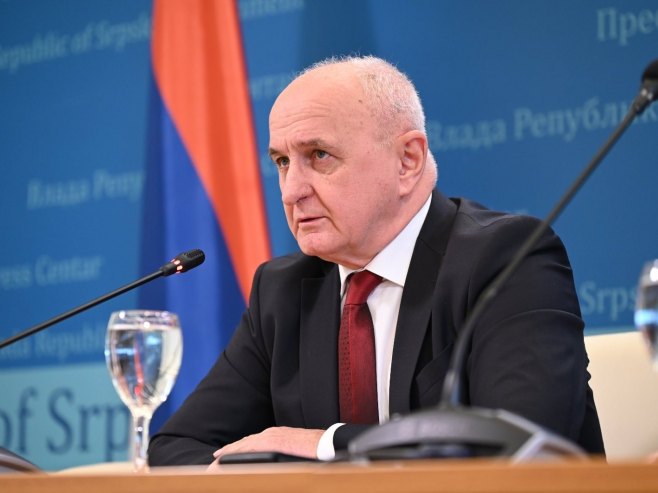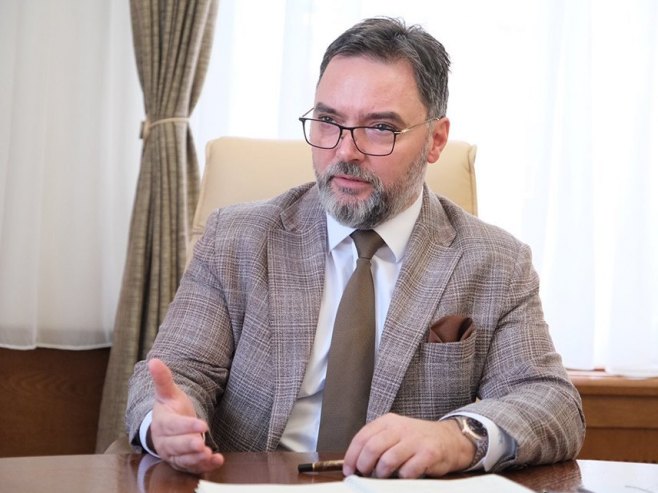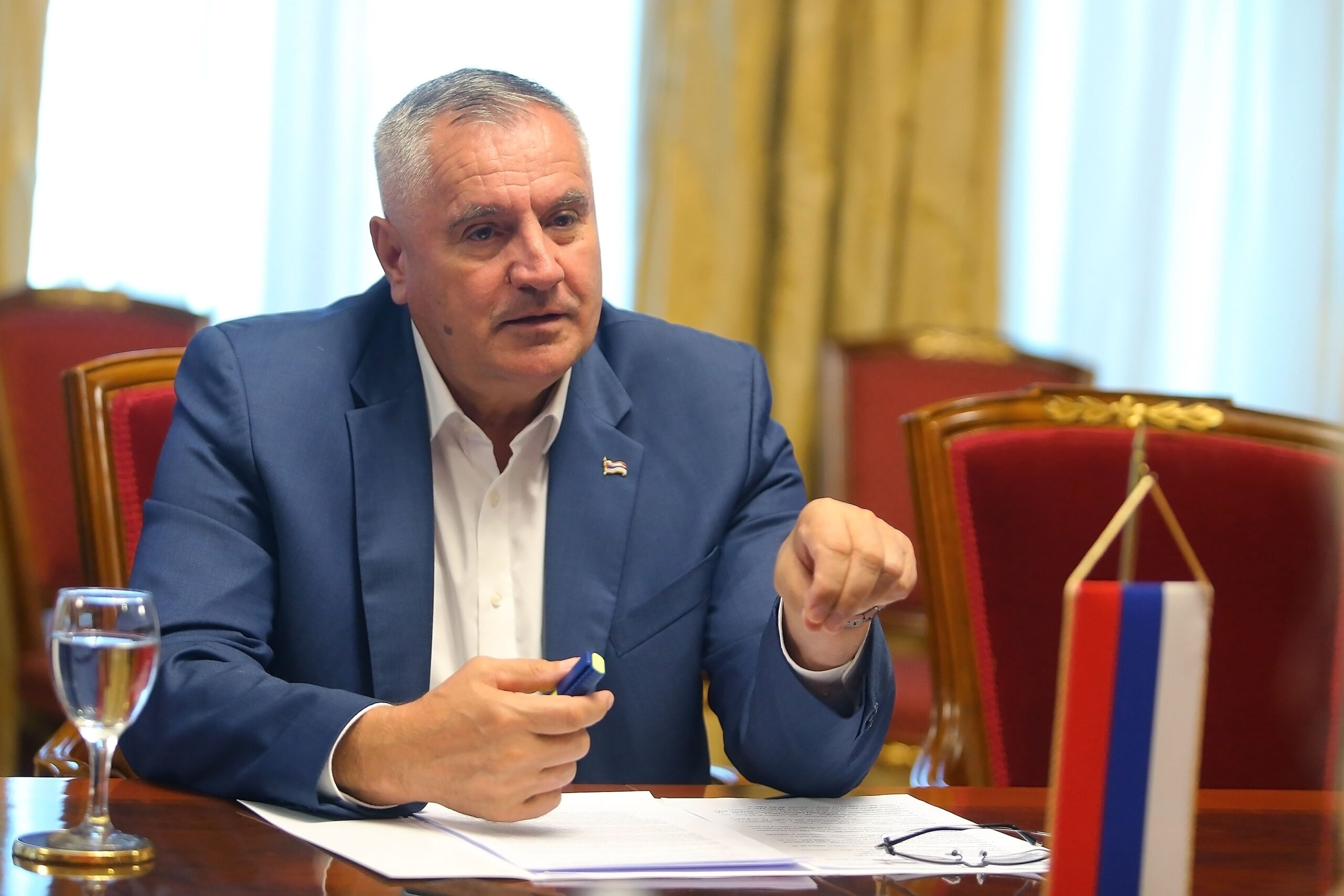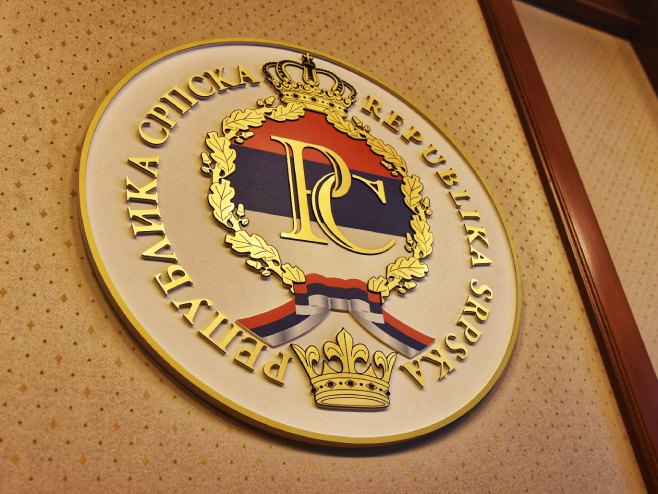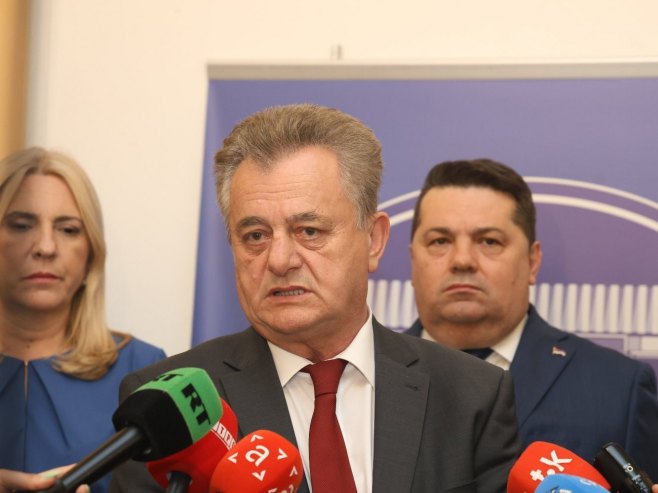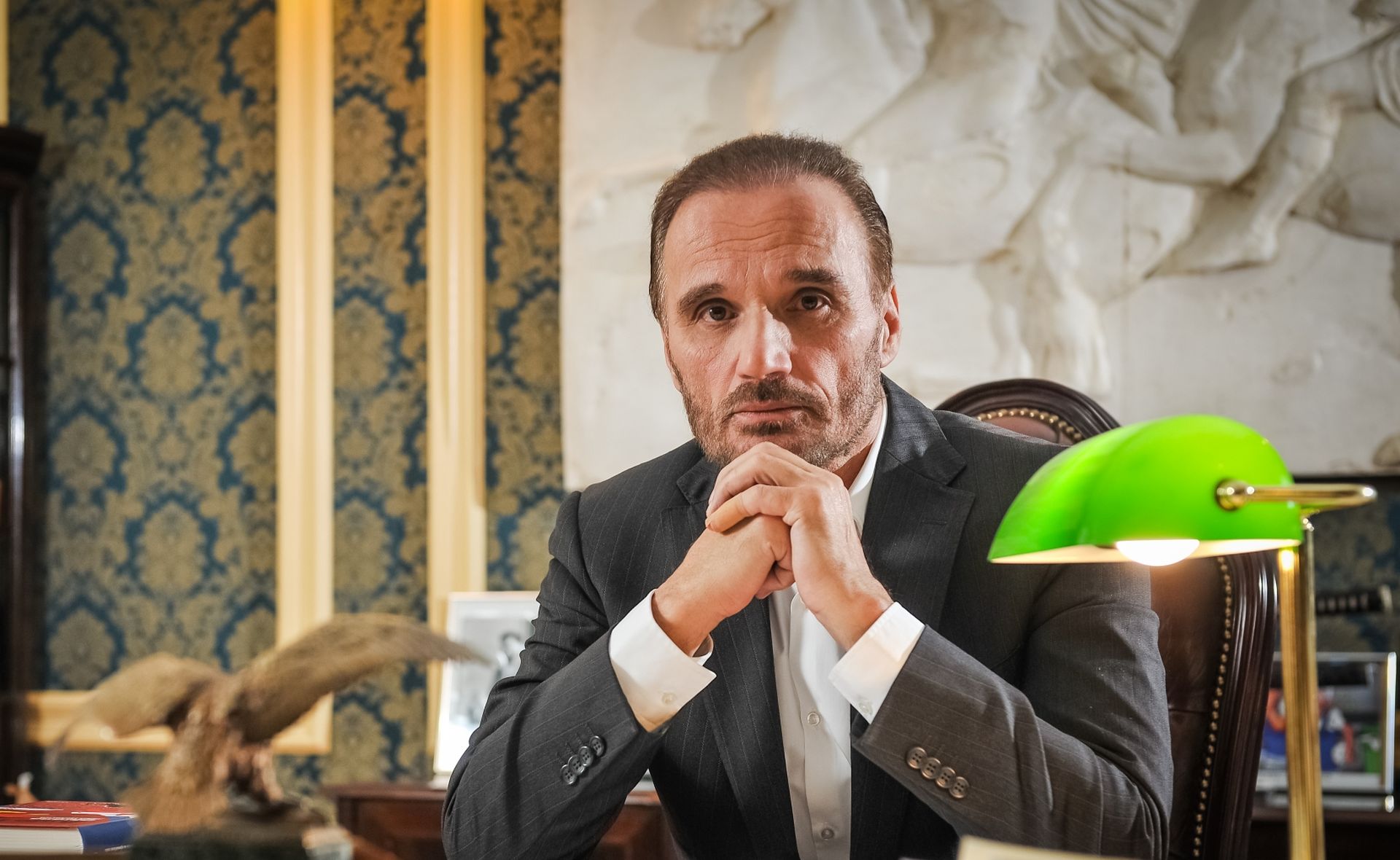The synergy between the institutions of Republika Srpska and Serb representatives is the greatest benefit for Republika Srpska and is evident within the institutions of Bosnia and Herzegovina, stated Staša Košarac, Deputy Chair of the Council of Ministers, in an interview with Srna.
Košarac, who is also the Minister of Foreign Trade and Economic Relations, emphasized that Serb ministers in the Council of Ministers act primarily to affirm the policies of Republika Srpska, ensuring that no decision is made without prior alignment with its institutions.
We are persistent in ensuring full visibility of Republika Srpska’s positions in the decision-making process at the Council of Ministers – said Košarac.
He believes that one of the biggest benefits of the current structure in Republika Srpska’s institutions and its representatives in BiH institutions is the synergy and clearly defined policy that everyone in BiH must understand – Republika Srpska has a say in Sarajevo, no matter how politically painful that may be for others.
- Thanks to this synergy and the policies led by Republika Srpska’s President Milorad Dodik, we have positioned ourselves as a relevant political factor. Unlike before, when decisions harmful to Republika Srpska were made by the Council of Ministers without consultation, today, this is no longer the case – Košarac stated.
He added that there was no synergy in the past between Republika Srpska’s institutions and its political representatives, but today, this strength exists, making it one of the greatest benefits for Republika Srpska.
Political atmosphere in the Council of Ministers is not ideal
Košarac admitted that the political atmosphere in the Council of Ministers is not ideal, as there are serious disagreements, although there are issues that can be addressed and negotiated.
This approach, he explained, has become the model for Serb ministers, who prevent actions that are not in accordance with the BiH Constitution and the Dayton Agreement.
- I believe we have adequately protected the constitutional position of Republika Srpska and its capacity through the coordination mechanism related to European integration and standards. That much is clear – Košarac emphasized.
He noted that no decision adopted by the Council of Ministers has harmed the vital interests of Republika Srpska, its institutions, or its citizens.
Republika Srpska makes sovereign decisions
When asked about the continuous unfair treatment by the OHR, the Constitutional Court of BiH, and certain Western diplomats toward Republika Srpska and President Dodik, Košarac pointed out two approaches.
The first approach, promoted by Republika Srpska and its president, emphasizes sovereign decision-making by local politicians based on the BiH Constitution, without foreign interference.
- The key question is whether political partners from the Federation of BiH have the courage and strength to accept this approach. Republika Srpska does, and it demonstrates this. Republika Srpska makes sovereign decisions and implements its policies – Košarac stated.
The second approach, he argued, involves those who are submissive to any foreigner who arrives in BiH, treating them as partners instead of working with Serbs and Croats as the other two constituent peoples.
Unlike Bosniak politicians, Košarac emphasized that representatives of Republika Srpska are not interested in the views of foreign actors, particularly hostile ones such as the illegitimate High Representative Christian Schmidt or U.S. Ambassador Michael Murphy, whose goal is to keep BiH a protectorate.
It is completely hypocritical to talk about BiH’s European path while foreigners sit in BiH institutions and the OHR still exists – Košarac added.
Foreign influence in BiH is harmful
Košarac questioned how many times European officials have said that BiH cannot progress toward the EU with the OHR in place, yet no steps are taken to close it.
- Let one of those foreigners legitimize Schmidt. What is he today? A foreigner and a stumbling block to good relations in BiH. He is harmful – Košarac stressed.
He criticized Schmidt and Murphy for their shameful roles in the politically motivated trial against President Dodik in the BiH Court, where, as Košarac noted, there is no law, justice, or fairness.
Košarac emphasized that the representatives of Republika Srpska have presented a credible stance regarding BiH’s European future, but the presence of foreigners in the Constitutional Court of BiH and politically influenced judges from the SDA party remain obstacles to EU membership and act against Republika Srpska’s interests.
- Our policy is not about outvoting anyone in any institution; it’s about passing a law on the BiH Constitutional Court, where only BiH citizens will serve, with clearly defined rules for appointing judges and decision-making – Košarac concluded.
Growth plan blocked by four cantons and SDA, Republika Srpska is constructive
Regarding the Growth Plan and obstacles to BiH’s European integration, Košarac expressed frustration, describing EU funds as either an illusion or tied to socio-economic reforms and conditions.
He noted that Sarajevo often capitulates under pressure, promising to fulfill EU demands in exchange for financial aid.
- We are cautious in our approach. We want to move toward the EU but also protect the constitutional positions of BiH and Republika Srpska. This is fundamental, especially concerning the coordination mechanism – Košarac emphasized.
He added that Republika Srpska has been constructive and presented proposals, while the Federation of BiH, particularly the four cantons under SDA, has blocked progress.
- Republika Srpska is active and constructive, but the Federation’s internal disagreements between the SDA and the “Troika” coalition remain the main problem – Košarac explained.
Chief negotiator with the EU should be a Serb from Republika Srpska
Regarding the appointment of the chief negotiator between BiH and the EU, Košarac argued that there is no reason why the candidate should not be a Serb from Republika Srpska, as other important roles are already held by representatives of the other two constituent peoples.
- The decision on the chief negotiator will be made based on political agreements and include the structure for negotiations. These two decisions are connected – Košarac noted.
BiH has a perspective in the EU, Open Balkan, and BRICS
Košarac emphasized that Republika Srpska has ambitions to integrate regionally, Europeanly, and globally, including exploring connections with BRICS and China, alongside the EU path.
- Unlike Republika Srpska, the Federation of BiH is hesitant, indecisive, and even obstructive in some cases – Košarac stated.
Finally, Košarac extended holiday greetings to all citizens of Republika Srpska, the Federation of BiH, and Brčko District, wishing them health, happiness, and success in the upcoming year.
Source: RTRS

